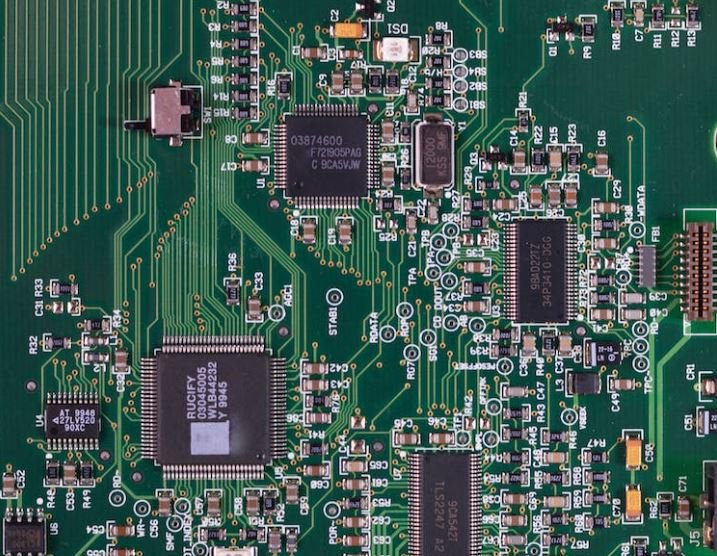AI and Healthcare
Artificial Intelligence (AI) is revolutionizing the healthcare industry, bringing advancements that were once only imagined in science fiction. By leveraging the power of AI, healthcare providers can improve patient care, diagnosis accuracy, and the overall efficiency of medical processes.
Key Takeaways
- AI is transforming healthcare through improved patient care and increased efficiency.
- AI can enhance diagnosis accuracy and assist in treatment planning.
- AI-powered chatbots and telemedicine offer convenient healthcare options.
- Privacy, data security, and ethical considerations must be addressed in AI healthcare systems.
AI has the potential to significantly improve diagnosis accuracy, allowing doctors to make more informed decisions. **Machine learning algorithms** can analyze vast amounts of medical data, identifying patterns and predicting outcomes with greater precision than human doctors alone. One interesting application of AI in healthcare is the use of **computer vision** to interpret medical images such as X-rays and MRIs, helping radiologists detect abnormalities more efficiently.
Furthermore, AI can assist in treatment planning by analyzing patient data, medical literature, and treatment guidelines. Through AI-powered systems, doctors can access updated treatment options and personalized recommendations to deliver the most effective care. *For example, AI algorithms can analyze genetic information to identify potential drug interactions and suggest personalized treatment plans.*
AI-enabled Healthcare Options
AI-powered chatbots and telemedicine platforms are transforming the way patients access healthcare. Chatbots provide instant assistance and support by answering medical questions and offering guidance based on symptom analysis. Telemedicine enables patients to consult with doctors remotely, providing convenient and cost-effective healthcare options. *Imagine receiving medical advice from the comfort of your own home, at any time of the day or night.*
AI, Privacy, and Ethical Considerations
The widespread implementation of AI in healthcare raises important ethical and privacy concerns. While AI enables the collection and analysis of large amounts of sensitive patient data, precautions must be taken to protect patient privacy and ensure data security. Additionally, the use of AI in healthcare necessitates ethical guidelines to regulate decision-making algorithms and prevent biases. Policymakers and healthcare professionals must collaborate to develop robust frameworks that address these concerns and ensure responsible AI usage.
Data-driven Healthcare
Data is the backbone of AI in healthcare. With the increasing adoption of electronic health records and wearable devices, healthcare providers have access to a wealth of patient data. This data can be used to train AI systems, enabling them to deliver more accurate diagnoses and treatment plans. However, proper **data governance** and consolidation are crucial to ensure data quality and integrity. By leveraging high-quality data, AI can provide valuable insights for early disease detection, personalized medicine, and population health management.
| Benefits of AI in Healthcare | Challenges of AI in Healthcare |
|---|---|
|
|
| AI Applications in Healthcare | Examples |
|---|---|
|
|
The Future of AI and Healthcare
As technology continues to advance, AI in healthcare will become even more prevalent. The potential for AI to transform healthcare is vast, with promising applications in diagnosis, treatment planning, and personalized medicine. However, it is important to ensure that AI systems are developed and implemented responsibly, with a focus on patient privacy and ethical considerations. By addressing these challenges, healthcare providers can harness the power of AI to improve patient outcomes and revolutionize the healthcare industry.

Common Misconceptions
Misconception 1: AI will replace healthcare professionals
One common misconception surrounding AI in healthcare is that it will completely replace healthcare professionals. Although AI has the potential to automate certain tasks and enhance efficiency, it cannot replace the expertise and empathy provided by human healthcare professionals.
- AI can support healthcare professionals by automating administrative tasks.
- Human interaction and empathy are crucial for patient care.
- AI can assist in diagnosing and treating diseases, but human oversight is essential.
Misconception 2: AI always makes accurate diagnoses
Another misconception is that AI always provides accurate diagnoses. While AI systems can analyze vast amounts of data and detect patterns, they are not infallible. Errors can occur due to data limitations or biases in the training data.
- AI has the potential to improve diagnostic accuracy but is not 100% reliable.
- Human expertise is necessary to validate and interpret AI-generated diagnoses.
- Data quality and diversity play a crucial role in AI accuracy.
Misconception 3: AI in healthcare is only beneficial for medical professionals
Some people wrongly believe that AI in healthcare only benefits medical professionals and does not offer any advantages for patients. However, AI can improve patient outcomes and experiences through personalized treatment plans, remote monitoring, and predictive analytics.
- AI-powered algorithms can personalize treatment plans based on individual patient data.
- Remote monitoring through AI can enhance patient convenience and reduce hospital visits.
- Predictive analytics can help identify potential health risks and intervene early.
Misconception 4: AI in healthcare is a threat to patient privacy
There is a misconception that AI in healthcare poses a significant threat to patient privacy. While it is true that AI relies on patient data for analysis, robust security measures can be implemented to ensure patient confidentiality and compliance with privacy regulations.
- Encrypted data transmission and secure storage methods can protect patient privacy.
- Data anonymization techniques can be applied to remove personally identifiable information.
- Compliance with regulations, such as HIPAA, helps safeguard patient privacy in AI applications.
Misconception 5: AI in healthcare is an immediate solution to all problems
A commonly held misconception is that AI in healthcare is a panacea that can address all problems immediately. While AI has immense potential, its implementation requires careful consideration, extensive testing, and continuous refinement to ensure its effectiveness and safety.
- AI implementation requires thorough testing and validation to minimize risks.
- Continuous monitoring and improvement are necessary to address limitations and biases.
- AI is a tool that complements and enhances healthcare, not a standalone solution.

AI and Healthcare: Revolutionizing the Medical Industry
Artificial Intelligence (AI) is transforming various sectors, and healthcare is no exception. AI technologies are revolutionizing the medical industry by improving diagnostics, enabling personalized treatment plans, enhancing patient care, and optimizing operational efficiency. The following tables highlight key aspects of AI’s impact on healthcare.
Advancements in Diagnostics
With AI, diagnostics have become more accurate and efficient. Algorithms analyze medical images, symptoms, and patient history to assist in detecting diseases or conditions.
| AI Diagnostic Technology | Benefits |
|---|---|
| Machine Learning Algorithms | Enhanced accuracy in detecting cancer |
| AI-enabled Pattern Recognition | Early identification of cardiovascular diseases |
Personalized Treatment Plans
AI algorithms can analyze extensive patient data, including genetic information and medical records, to develop tailor-made treatment plans and therapies.
| AI Personalized Treatment | Benefits |
|---|---|
| Genomic Analysis | Identification of precise drug therapies |
| Machine Learning-based Decision Support | Optimized medication dosage and treatment outcomes |
Enhanced Patient Care
AI applications help in improving patient care by providing support to healthcare professionals and offering personalized assistance to patients.
| AI Application in Patient Care | Benefits |
|---|---|
| Chatbots and Virtual Assistants | 24/7 patient support and guidance |
| Predictive Analytics | Early identification of patient deterioration |
Operational Efficiency
AIs automation abilities relieve administrative burdens, optimize workflows, and streamline operations within healthcare institutions.
| AI-based Operational Efficiency | Benefits |
|---|---|
| Robotic Process Automation | Automated billing and appointment scheduling |
| Predictive Maintenance | Reduced downtime and maintenance costs |
Ethical Considerations
As AI becomes more prevalent in healthcare, it is essential to address ethical concerns, such as data privacy, transparency, and accountability.
| Ethical Considerations | Key Points |
|---|---|
| Data Privacy | Strict protocols for protecting patient information |
| Transparency | Required explanations for AI-based decisions |
| Accountability | Clear responsibility for AI mistakes or biases |
Barriers to Adoption
Despite the promising advancements, the adoption of AI technologies in healthcare faces certain barriers, including cost, data quality, and the need for specialized training.
| Barriers to AI Adoption | Challenges |
|---|---|
| High Implementation Costs | Limited budget allocation for AI infrastructure |
| Data Quality and Standardization | Noisy or incomplete data affecting AI accuracy |
| Training and Staffing | Skilled personnel required for AI deployment |
Successful AI Integration
Successful implementation of AI technologies in healthcare relies on strategic planning, collaboration, and leveraging existing infrastructure.
| Keys to Successful AI Integration | Essential Factors |
|---|---|
| Strategic Partnerships | Collaboration between healthcare providers and AI developers |
| Data Integration | Interoperability of various healthcare systems |
| Regulatory Alignment | Policies that support AI adoption and regulation |
Future Possibilities
The future of AI in healthcare holds immense potential, opening doors for groundbreaking innovations and advancements.
| Potential Future Innovations | Possibilities |
|---|---|
| AI-assisted Robotics | Surgical precision and less invasive procedures |
| Intelligent Wearable Devices | Continuous monitoring and early warning systems |
AI has already begun to revolutionize healthcare, from improving diagnostics and personalizing treatments to enhancing patient care and operational efficiency. Nevertheless, ethical considerations, barriers to adoption, and effective integration strategies need careful consideration. As technological advancements continue, the healthcare industry can anticipate a future rich with possibilities for AI-driven innovations, ultimately improving patient outcomes and transforming the way healthcare is practiced.
Frequently Asked Questions
How can AI be utilized in the healthcare industry?
AI can be used in healthcare for various purposes, such as medical image analysis, diagnosis prediction, drug discovery, virtual nursing assistants, and personalized patient care.
What are the benefits of implementing AI in healthcare?
The benefits of AI in healthcare include improved efficiency and accuracy in diagnosing diseases, personalized treatment plans, enhanced patient monitoring, faster drug discovery, and cost savings.
What challenges does AI face in healthcare?
Some challenges that AI faces in healthcare include data privacy and security concerns, lack of regulatory frameworks, ethical considerations, bias in algorithms, and limitations in AI technology.
Can AI replace human doctors and nurses?
AI cannot replace human doctors and nurses entirely. However, AI can assist healthcare professionals by providing them with valuable insights, improving decision-making, and automating repetitive tasks.
How can AI help with medical imaging?
AI can assist in medical imaging by analyzing radiology images, detecting abnormalities, and aiding in diagnosis. It can also streamline image storage and retrieval processes, improving overall efficiency.
Is AI capable of improving patient outcomes?
Yes, AI has the potential to improve patient outcomes by enabling early detection of diseases, personalized treatment plans, more accurate diagnoses, and proactive health monitoring.
What are the ethical implications of using AI in healthcare?
The ethical implications of using AI in healthcare include concerns about patient privacy, bias in algorithms, reliance on AI systems, potential job displacement, and the need for transparency and accountability in AI decision-making.
How can AI assist in drug discovery?
AI can assist in drug discovery by analyzing large datasets, identifying potential drug targets, predicting drug efficacy and toxicity, and accelerating the process of finding new drugs for various diseases.
Can AI improve the quality of patient care?
Yes, AI has the potential to improve the quality of patient care by enabling personalized treatment plans, reducing medical errors, improving patient monitoring, and fostering timely intervention.
What role does AI play in healthcare research?
AI plays a significant role in healthcare research by helping researchers analyze large datasets, identify patterns and correlations, develop predictive models, and gain new insights into diseases and treatments.




